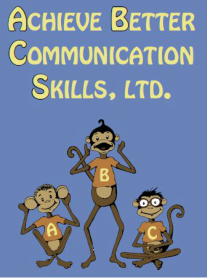Speech and language
difficulty and disorder
facts
|
What is a speech and language problem?
A speech and/or language problem exists when a communication "break down" occurs between the speaker and the listener. Some reasons for this "break down" may include:
|
What are the warning signs for children?
You may want to questions your child's speech and language if:
Kindergarten
It is not uncommon for children entering kindergarten to be using at least one of these sounds incorrectly: /l/, /r/, /s/, /th/. If you are worried, check to see if your child can make the sound correctly by itself. If s/he can make the sound, but isn't using it in words, then model and stress the sounds for your child. Still worried? See a Speech-Language Pathologist for an evaluation. By 7 years of age children should be using ALL sounds correctly.
|
In addition, ask yourself the following questions:
- How intelligible is my child's speech to an unfamiliar listener?
- Can my child produce the age appropriate sounds but cannot use them in words?
- Does my child always have the tip of the tongue protruding from his/her mouth while speaking?
- Does my child have difficulty pronouncing words with more than 2 syllables?
- Is the quality of speech affected by hoarseness, pitch irregularities, harshness or breathiness?
- Is the rhythm of the speech affected by repetitions, breaks and pauses?



